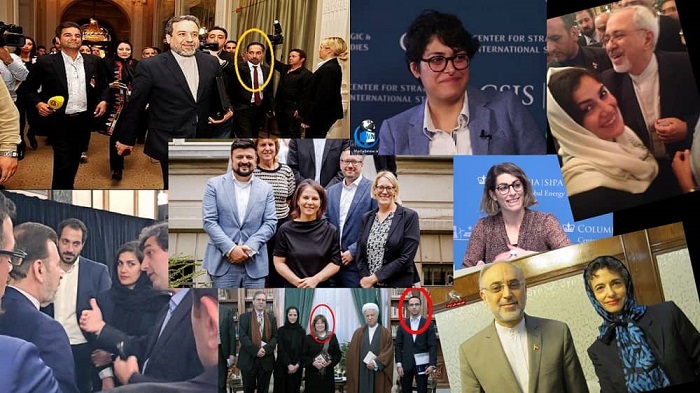
Disturbingly, these individuals, including a current employee of the Department of Defense, are said to have actively influenced U.S. decision-making, disseminating the Iranian regime’s narrative on matters such as nuclear talks, sanctions, and opposition movements.
However, such meddling is not novel. Historically, Iranian agents successfully manipulated the U.S. intelligence community, leading it to believe that Iraq, an arch-enemy of Iran, possessed weapons of mass destruction. This misinformation played a significant role in shaping the U.S.’s disastrous policy in the Middle East.
If there’s anything all #Iran-ians everywhere, inside and out, agree on (and getting Iranians to agree on anything is mission impossible) is that the #MEK is NOT an alternative.
Thanks for your insights Mr Pence. Please don’t bother next time. https://t.co/QjfqdgXXDJ
— Dina Esfandiary (@DEsfandiary) November 1, 2021
For over 30 years, Iran’s regime has strategically striven to force the global community to recognize and accept its theocratic rule. To this end, the regime has infiltrated various Western institutions, from NGOs to academic departments. It has identified and recruited advocates, some of whom have climbed the ranks in governments, think tanks, and media organizations, to propagate its message.
One such figure, Dina Esfandiary, has affiliations with King’s College London and the Center for Strategic and International Studies (CSIS). Her analyses and policy recommendations, often aligning with Tehran’s viewpoints, are frequently cited by U.S. government agencies.
In case this @nytimes op-ed was missed, the reason why the #Iranian #MEK is so hated: http://t.co/W3BpqFR
— Dina Esfandiary (@DEsfandiary) August 19, 2011
Similarly, according to a report by Semafor, Ariane Tabatabai, serving a critical role in the Pentagon, has been actively involved in influencing U.S. policy, specifically regarding the Iranian opposition group, the People’s Mojahedin of Iran (PMOI/MEK). Tabatabai’s negative portrayal of the PMOI/MEK has appeared in numerous publications and has influenced key U.S. foreign policy decisions.
Adnan Tabatabai, an “Iran analyst” based in Germany, who advises German and European policymakers, has also repeatedly targeted the MEK in his writings, furthering Tehran’s agenda.
These individuals represent a fragment of the larger network that champions the Iranian regime’s cause. This infiltration’s consequences have been deeply damaging, skewing perceptions, policy decisions, and ultimately, historical events.
Was es zur #Volksmujahedin aka #MKO aka #MEK zu sagen gibt, hat @schwerin_von für @NZZ zusammengetragen. „Wegen ihrer Rolle im Iran-Irak-Krieg sei die Gruppe bei Iranern heute «verhasster als al-Kaida und der IS», sagt der #Iran-Experte Adnan Tabatabai.“ https://t.co/7xpENIdogR
— Adnan Tabatabai (@A_Tabatabai) January 14, 2019
The Iranian Resistance has long cautioned Western nations about the regime’s subversive tactics. Despite these warnings often falling on deaf ears, the Resistance continues to unmask and expose Tehran’s deep-rooted espionage activities. The challenge is not just a Western concern; it directly impacts the future of Iran’s clerical dictatorship. Whether these latest revelations will prompt stringent actions remains to be seen.

MEK Iran (follow us on Twitter and Facebook), Maryam Rajavi’s on her site, Twitter & Facebook, NCRI (Twitter & Facebook), and People’s Mojahedin Organization of Iran – MEK IRAN – YouTu







